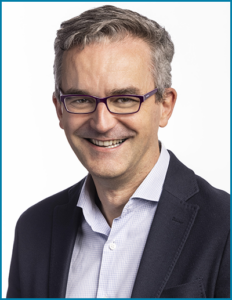Interview: Repsol Gears Up to Start Producing SAF at Cartagena Refinery
Spanish energy company Repsol is preparing to start production of sustainable aviation fuel (SAF) with a new 250,000 metric tons/year biofuel plant at its Cartagena industrial complex in the southeast of Spain.
Tomas Malango and Oliver Fernandez, Repsol’s Renewable Fuels and International Aviation directors, spoke on the sidelines of the IATA’s World Sustainability Symposium in Madrid in early October about the company’s plans to meet growing demand for SAF.
OPIS: So Cartagena is almost ready to produce SAF?
 Malango: Yes. We’re in the commissioning stage, and our goal is to kick-start [the biofuel plant] before the end of the year.
Malango: Yes. We’re in the commissioning stage, and our goal is to kick-start [the biofuel plant] before the end of the year.
OPIS: Is it going to produce both SAF and HVO (renewable diesel)?
Malango: Yes. It’s a plant that can operate in 100% SAF mode, producing around 200,000 metric tons/year, in 100% HVO mode around 250,000 mt/year, or in a mixed mode of both HVO and SAF.
OPIS: At current prices, what share of production would you allocate to SAF versus HVO?
Malango: I think it’s not about price, but about demand. Our plan is to start with higher HVO production. Then, as SAF demand develops, the plant would end up producing only SAF by the end of the decade. We’ll move with the market; if it demands more SAF, we’ll raise output faster.
We can’t deploy French fries restaurants to produce more SAF.
OPIS: Will your SAF market be Spain and Portugal, or will you be exporting as well?
Malango: We’ll be able to sell SAF as far as clients are willing to pay for it; it’s a strictly commercial issue. The product can travel; there is an existing infrastructure in place.
 Fernandez: To provide some context, if the 2% SAF mandate started today, those 200,000 mt/year alone would be more than enough to meet the SAF demand of Spain and Portugal and have a production surplus. This surplus gives you optionality. There are airlines that want to go beyond the 2% mandate and are in the voluntary SAF market. The plant will be able to meet both mandated and voluntary SAF demand. Where? In Spain and Portugal. And then, depending on market dynamics, we might be able to go to Europe.
Fernandez: To provide some context, if the 2% SAF mandate started today, those 200,000 mt/year alone would be more than enough to meet the SAF demand of Spain and Portugal and have a production surplus. This surplus gives you optionality. There are airlines that want to go beyond the 2% mandate and are in the voluntary SAF market. The plant will be able to meet both mandated and voluntary SAF demand. Where? In Spain and Portugal. And then, depending on market dynamics, we might be able to go to Europe.
OPIS: What’s your forecast for the used cooking oil (UCO) market as a feedstock? Do you have any concerns about supply?
Malango: Waste is an anomalous type of commodity because you cannot increase waste production. Usually, when there is an increase in demand for a given commodity, supply rises to balance the price. With UCO, you have an existing waste that is mostly yet to be collected. In Spain, only 4% of domestic UCO is collected [at present]. We have a project to collect oils from the domestic sector at fuel stations, and we are working to build supply chains that are closer to Spain. But the UCO market is what it is and we have to go fetch it wherever it is. We can’t deploy French fries restaurants to produce more SAF. [UCO supply] will peak at some point.
OPIS: So now, in order to kick-start SAF production, have you had to source UCO from Asia?
Malango: From everywhere. We have national supply, European supply and Asian supply. We have a combination of supply contracts and our own supply chains that are being developed region by region.
OPIS: And Repsol is also planning a biofuel project in Puertollano, Spain. Is that going to produce SAF as well?
Malango: Puertollano will produce 100% HVO. This will allow us to free up Cartagena to produce SAF. Cartagena will start combining HVO and SAF production. When we have Puertollano running, we will be able to switch Cartagena to full SAF production by late 2025 or early 2026, depending on how the SAF market develops.
OPIS: Some companies are selling SAF indexed to oil prices. Is that the case for Repsol as well?
Malango: You have three ways of selling SAF in terms of price formula. One is fossil fuel indexation plus a green premium. Another one is the so-called “cost plus,” the cost of production plus a margin. The third one is an indexation to SAF market benchmarks, which take into account feedstock costs among other things. We work with all three formulas. It’s more a question of how the customer wants to handle the potential price volatility.
Fernandez: The airline industry has been using jet fuel benchmarks for many years. They have been buyers of a single product for decades. I believe airline reticence is not caused by switching to a SAF benchmark, but because they don’t have the capabilities to change, because they’ve been doing it that way their whole lives. It’s a market that is changing entirely, and so you have to sit down with them and explain that this is a new product with different dynamics and feedstocks, that it would be reasonable that, if you’re buying potatoes, you’re not indexing it to lemons, but to potatoes. There is some initial shock, but mainly because of that habit of using A1 jet fuel benchmarks.
Malango: But, in the end, it is sold the way the customer wants.
OPIS: And is it being sold via annual contracts with airlines?
Fernandez: The market is in its birthing phase, until a few weeks ago there was no regulatory clarity. The mandates were announced on Sept. 13. Until then, there were just people demanding SAF on the voluntary market with all types of contracts. We signed a pluriannual contract with Ryanair in May, and there are other contracts that are shorter.
But, above all, what producers and airlines want is to have regulatory clarity. You won’t sign any long-term contracts if you don’t know what the mandate is, what the obligations are, who bears the obligations, what is the obligation based on. Is it by airport? Annually? Quarterly? Weekly? Is it on a European or national basis?
There are many question marks. The path is not clear yet. We had a meeting with the MEP responsible for the law a few weeks ago, and he said that there are some details that aren’t likely to be clarified until June next year.
Today, airlines are saying “we need, we need, we need the product.” Perfect. From our side, we took the risk, our board green-lighted this investment four years ago, when the regulatory framework was even worse. The fact is that now we have it, at least to cover Spain and Portugal, so we are glad for airlines to come and see what contract formula they want, in terms of length and price indexation.
–Editing by Rob Sheridan, rsheridan@opisnet.com
